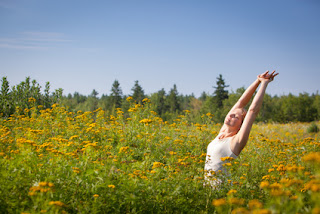Having allergies is not fun, but there are some common things that can make your allergies worse.
If you have allergies, most likely you are well aware what is causing them. But there are a few things that may make your allergies worse without even realizing it. Learn how these common items may bring on allergies or worsen existing allergies.
Fruits and Veggies. You may have an allergic reaction to some of the fruits and vegetables you buy. It's referred to as oral-allergy syndrome. A protein found on the skin of some raw produce can trigger allergy symptoms such as an itchy throat and mouth. Peeling produce and even cooking can help remove the proteins. You might be better off avoiding that particular fruit or vegetable.
Contact Lenses. Contact lenses make absorbing pollens in air more likely. Tears allow allergens to get trapped under the lense causing eye irratation. Sticking with your glasses during allergy season works best to avoid these symptoms.
Stress. When you feel stressed or anxious, you are twice as likely to get allergy symptoms or your allergies will worsen. Find ways to relax and destress. It's not only better for your allergy symptoms, but great for your overall health.
Alcohol. Red Wine can make allergy symptoms worse. Sulfites found in wine and beer are the culprit. Some people are especially sensitive to sulfites and will experience worsening allergy symptoms after consuming it.
The Wrong Medication. Knowing which medication will work best for your allergies is important. Make sure you speak with your doctor to find out whether an antihistamine or decongestant is best for your particular allergies. Allergena Products work well on both fronts to eliminate allergy symptoms you're experiencing. Click
here for more information on your particular zone and different Allergena Allergy products.
Perfume and Candles. The lining of the eyes and nose can be irritated with any types of perfumes. Perfumes and candles release these particles into the air increasing the chances for making your allergies worse.
Chlorine. Pools treated with chlorine can be a major cause of increased allergy symptoms for people. Chlorine is an irritating gas, and just being near the fumes is enough to bring on symptoms.
Clothing. Washing your clothes every time you wear them is crucial to removing pollen-causing allergies. Fabrics like wool allow allergens to remain on them because of the rough texture. Washing in hot water works best as well as wearing fabrics such as cotton.
Morning Showers. Pollen sticks to skin and hair easily. When you bathe in the morning you are going to bed with the allergens on your skin and hair from the night before. Bathe at night and go to bed in clean sheets and bedding. This helps to reduce lingering allergens clinging to your hair and clothing from the day.
Weather. Many of you already know that allergies are worse on dry, sunny and windy days. It is the perfect conditions for pollens to travel through the air. But light rain can stir up pollen as well.
Secondhand Smoke. People exposed to secondhand smoke have a higher incidence of allergies and worsening allergy symptoms. Smoke is an irritant that travels through the air that can affect your nasal and lung passageways. Keeping your exposure to a minimum will help fight off added symptoms.



